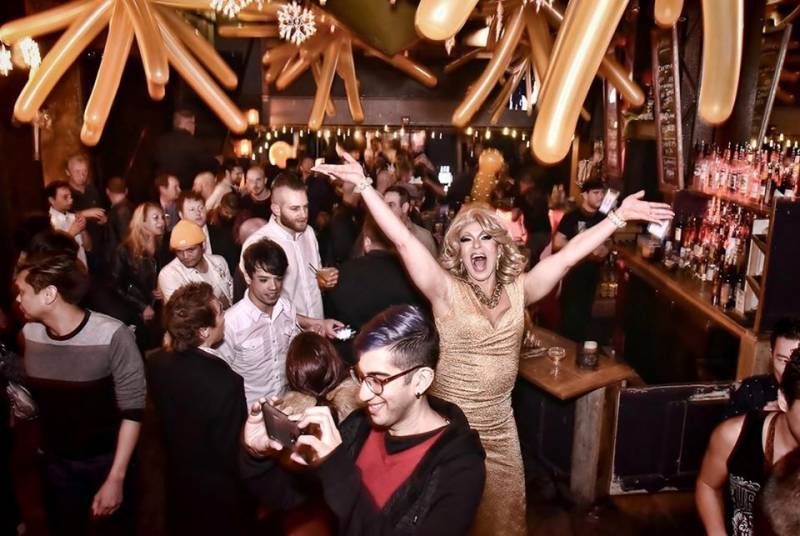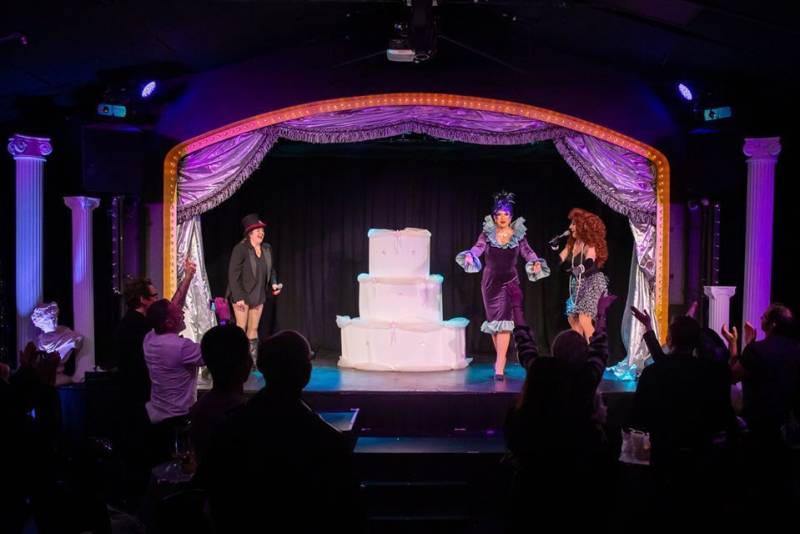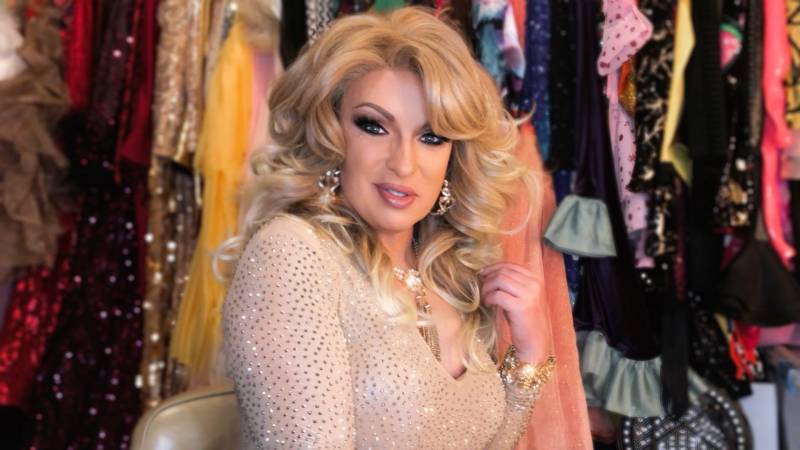When I Zoom into D’Arcy Drollinger’s world, an audible sound check drifts in from the next room, folks wander in and out of the frame to ask logistical questions, and Drollinger himself looks like he’s been awake for days, though his disposition is sunny and enthusiastic. After a year and a half of the pandemic—the last seven months of which his queer nightlife hub Oasis has been completely closed—the grand reopening of Oasis, scheduled for Pride weekend, is finally just around the corner.
Opening with the Drag Disco party Princess feels especially meaningful, as it was formerly a staple of the Stud collective at their former Ninth St. digs, which shuttered just over a year ago. With the Stud collective still venue-less, it’s a symbolic melding of two beloved nightlife staples to usher in a new era of what Drollinger is calling “Oasis 2.0.” After a pandemic-induced realization that Oasis’ past programming (and ticket prices) might have attracted a somewhat insular group of regulars, Drollinger’s new vision includes more accessible pricing structures, a wider range of parties and producers, and the idea that Oasis could be—should be—a “clubhouse” for all.
“I feel a responsibility,” he elaborates. “Because we’re coming out of this pandemic where I feel like certain people don’t really have a home… as performers and audience members are gone. And I want to be here for them.”

Even if Oasis’ very existence hadn’t been threatened by the multiple crises that COVID-19 brought to the forefront, it would have been a hectic year for Drollinger. In February of 2020, he assumed full ownership of the business after co-owner Heklina sold back her stake and moved more or less full-time to Palm Springs.
The two began working regularly together 10 years ago while Heklina was managing Rebel, a bar on Market Street. Offered a Tuesday night slot, Drollinger decided to put on parodies of Sex in the City—inspired in part by Heklina’s success with her popular Golden Girls series. The show was a hit, and gradually Drollinger moved from Tuesdays to weekends, adding new shows to the roster, such as Designing Women and Friends, as well as one of her original works—Shit and Champagne. In 2014, they got word that Rebel was closing for good. And that’s when the idea of co-owning a venue of their own began to take shape. On New Year’s Day, 2015—after months of negotiating for and remodeling the space at 298 11th Street— they opened the doors to the public, and Oasis was born.

A hybrid cabaret, theater, dance club and bar, Oasis is set apart from its fellow gay clubs and spaces partially by an attention to production elements. These include in-house technicians to run the shows, and a sturdy, theater-quality stage that, as Drollinger terms, “elevates” the experience for performers, who may be more accustomed to the glare of bare bulbs and makeshift platforms. While audiences stayed at home this past year, Drollinger added the equipment necessary to stream live performances from the space—a practice he intends to keep once live audiences return. Streaming is partly to keep the “clubhouse” accessible to a larger audience, and partly because Drollinger leaned hard into broadcasting during the shutdown, founding a subscriber-based streaming platform called Oasis TV. In addition to airing archival video of his signature staged parodies, Drollinger tapped a talent pool of local queens to create or guest star in a variety of talk shows, drag shows, makeup shows, cooking shows, and other original content created with a playful, queer emphasis.


